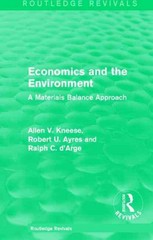Question
Why might banks in the mid-1930s have been holding reserves for reasons of safety? Banks were holding reserves to guard against Group of answer choices
Why might banks in the mid-1930s have been holding reserves for "reasons of safety"? Banks were holding reserves to guard against
Group of answer choices
A. competition.
B. bank loans.
C. inflation.
D. bank robbery.
Compare the length of terms of office for central bank heads and members of central bank governing boards between the U.S. Federal Reserve and foreign central banks?
A. The Fed has the shortest-term length for the head and the longest-term length for the board members.
B. The lengths of the terms do not vary between the Federal Reserve, the European Central Bank (ECB), the Bank of England, and the Bank of Japan.
C. The Fed has the longest-term length for the head and the shortest-term length for the board members.
D. The lengths of both terms are longer in the US than anywhere else.
Why would a central bank that is independent be expected to perform better?
A. It would generate higher profits.
B. It would be able to offer lower interest rates to borrowers.
C. It would be able to conduct monetary policy free from political interference.
D. It would be able to offer higher interest rates to savers.
What was the effect on banks of the Fed's decision to increase the required reserve ratio?
Increasing the required reserve ratio
A. reinforced monetary contraction.
B. lowered the money multiplier.
C. raised the money multiplier.
D. Both A and B are correct.
What does discount policy imply?
A. Paying interest on banks' required reserve and excess reserve deposits.
B. Regulation requiring banks to hold a fraction of checkable deposits as vault cash or deposits with the Fed.
C. The purchase or sale of securities, typically U.S. Treasury securities, in financial markets.
D. Setting the discount rate and the terms of discount lending.
Banks are storing large amounts of reserves with the Fed for all of the following reasons, except:
A. tightened lending standards.
B. losses on mortgage-backed securities.
C. interest charged on their excess reserves.
D. losses on commercial real estate.
What trade-offs does the Fed face, particularly in the short run, in attempting to reach its goals?
A. In attempting to reach high economic growth, the Fed would pursue expansionary monetary policy, but this policy could cause higher unemployment.
B. In attempting to reach high economic growth, the Fed would pursue contractionary monetary policy, but this policy could cause higher unemployment.
C. In attempting to reach high employment, the Fed would pursue expansionary monetary policy, but this policy could cause lower economic growth.
D. In attempting to reach high economic growth or high employment, the Fed would pursue expansionary monetary policy, but this policy could cause higher inflation.
Why would anyone buy a bond with a negative interest rate?
A. Many of the bond purchases were made by individual investors who were wary of investing in higher risk bonds.
B. A lack of availability of corporate bonds.
C. Competing interest rates on bonds and other securities of comparable risk were low.
D. A lack of availability of government bonds.
What caused so many European corporate bonds to have negative interest rates?
A. Inflation rates were consistently increasing.
B. The European Central Bank cut interest rates to negative levels.
C. The European economy was growing at higher than normal rates.
D. Central banks were slowing asset purchases.
To increase the federal funds rate the Fed:
A. raises the interest rate it pays on required reserves.
B. raises the interest rate it pays on excess reserves and the interest rate it offers on reverse purchase agreements.
C. raises the interest rate it offers on reverse purchase agreements.
D. raises the interest rate it pays on excess reserves.
Step by Step Solution
There are 3 Steps involved in it
Step: 1

Get Instant Access to Expert-Tailored Solutions
See step-by-step solutions with expert insights and AI powered tools for academic success
Step: 2

Step: 3

Ace Your Homework with AI
Get the answers you need in no time with our AI-driven, step-by-step assistance
Get Started


